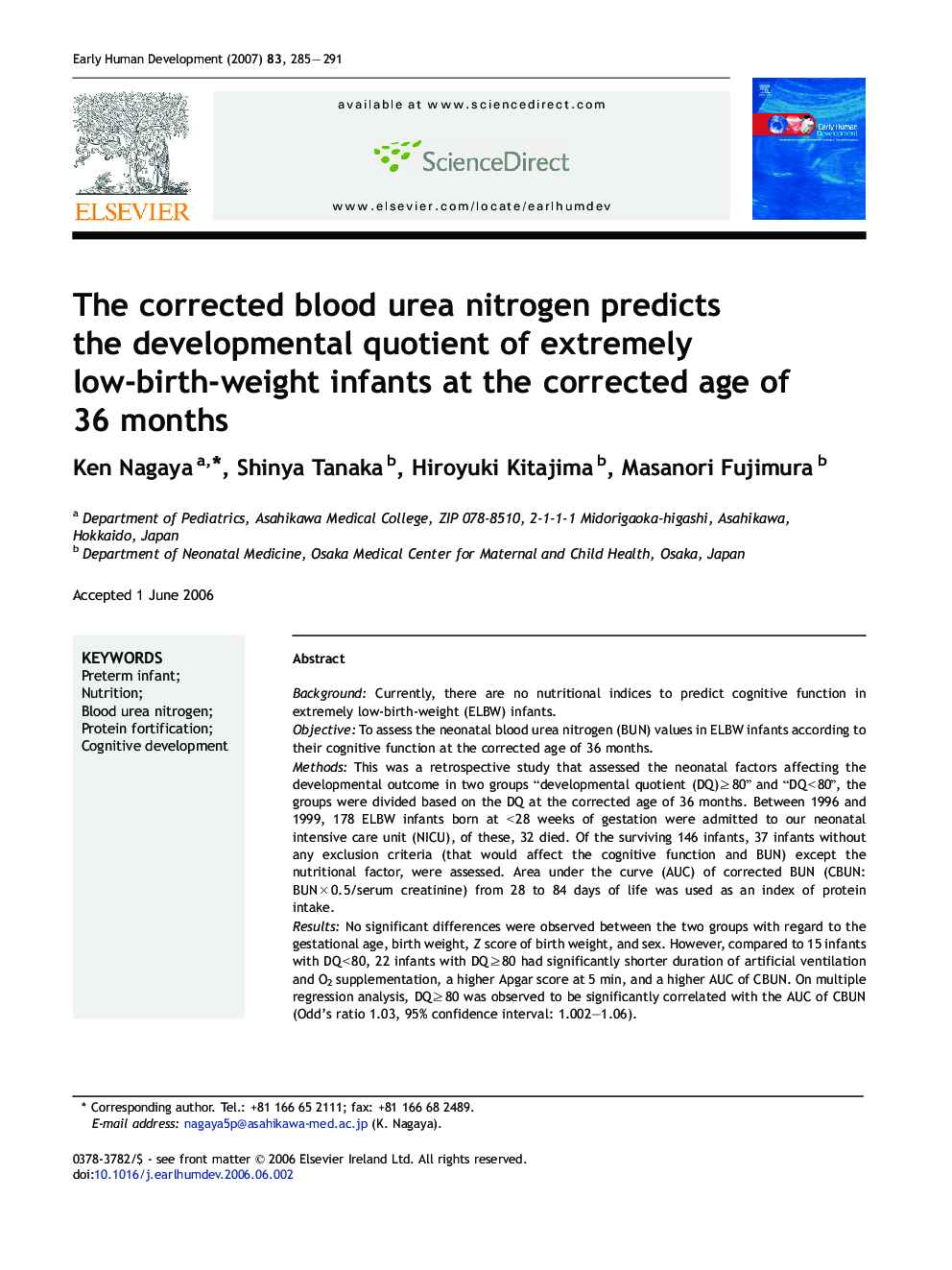| Article ID | Journal | Published Year | Pages | File Type |
|---|---|---|---|---|
| 3918338 | Early Human Development | 2007 | 7 Pages |
BackgroundCurrently, there are no nutritional indices to predict cognitive function in extremely low-birth-weight (ELBW) infants.ObjectiveTo assess the neonatal blood urea nitrogen (BUN) values in ELBW infants according to their cognitive function at the corrected age of 36 months.MethodsThis was a retrospective study that assessed the neonatal factors affecting the developmental outcome in two groups “developmental quotient (DQ) ≥ 80” and “DQ < 80”, the groups were divided based on the DQ at the corrected age of 36 months. Between 1996 and 1999, 178 ELBW infants born at < 28 weeks of gestation were admitted to our neonatal intensive care unit (NICU), of these, 32 died. Of the surviving 146 infants, 37 infants without any exclusion criteria (that would affect the cognitive function and BUN) except the nutritional factor, were assessed. Area under the curve (AUC) of corrected BUN (CBUN: BUN × 0.5/serum creatinine) from 28 to 84 days of life was used as an index of protein intake.ResultsNo significant differences were observed between the two groups with regard to the gestational age, birth weight, Z score of birth weight, and sex. However, compared to 15 infants with DQ < 80, 22 infants with DQ ≥ 80 had significantly shorter duration of artificial ventilation and O2 supplementation, a higher Apgar score at 5 min, and a higher AUC of CBUN. On multiple regression analysis, DQ ≥ 80 was observed to be significantly correlated with the AUC of CBUN (Odd's ratio 1.03, 95% confidence interval: 1.002–1.06).ConclusionThe CBUN level would provide an estimate of adequate protein intake and the subsequent development of an ELBW infant.
